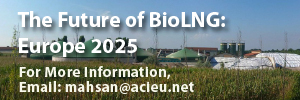Clean Energy Fuels, bp expand RNG joint venture
Located in South Dakota and Iowa, the dairy farms – with more than 30,000 cows – have the estimated potential to convert methane produced from waste into more than 7 million gallons of RNG annually.
Agriculture accounts for almost 10% of US greenhouse gas (GHG) emissions, according to the US Environmental Protection Agency. Capturing methane from farm waste can lower these emissions, by converting it into RNG for transport.
The California Air Resources Board (CARB) has given similar projects a carbon intensity (CI) score of weight average of -320 compared to CI scores of 101 for conventional diesel fuel and 15 for electric batteries.
“The demand for RNG is rapidly growing, highlighted by our recent announcement to fuel a new fleet of Amazon heavy-duty trucks developing across the country,” said Clay Corbus, senior vice-president and co-head of renewable fuels at Clean Energy.
“Our joint venture with bp to develop new supplies it critical to keeping up with this demand. The RNG that is expected to flow from these dairies to our fuelling infrastructure will allow our customers to dramatically reduce their carbon emissions and turn their sustainability goals into reality.”
Clean Energy has the largest network of RNG stations in the US, at 550 locations. Bp’s trading organisation transports RNG to California markets and monetises the environmental credits associated with dispensing the fuel.
Sean Reavis of bp biogas commented: “These collaborations are critical steps toward our ambition of helping the world reach net zero by 2050 or sooner.
“Our biogas strategy is focused on growth and developing an integrated business model that allows us to deliver the unique energy products the market is demanding.”
Dynamic Holdings will oversee construction and develop and operate the facilities following the execution of an agreement with the JV to execute multiple phases of dairy RNG projects.
The first RNG production facility is expected to be operational next year.























